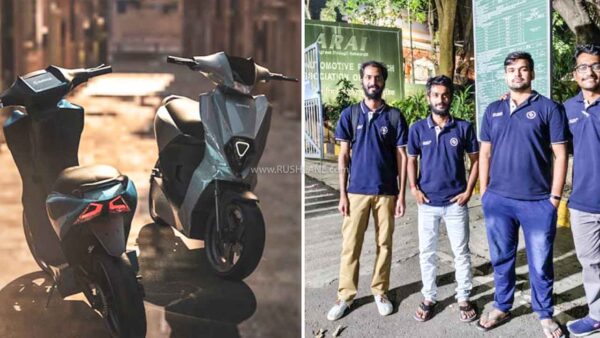
Upon its launch, Mark 2 will rival the likes of Bajaj Chetak, Ather 450X and TVS iQube
Simple Energy is set to launch its flagship electric scooter offering Mark 2 in May this year. The Bengaluru-based EV startup has recently raised an investment worth an undisclosed amount from angel investors which included Finance operations at UiPath, Vel Kanniappan, Vice President – Global Business and four other investors participating in the latest round of funding.
The company is further looking to invest an additional $8-10 million (approx Rs 70-75 crores) under Series A funding in the second quarter of 2021. As for Mark 2, Simple Energy will be launching its e-scooter initially in Bengaluru and Delhi and later in Mumbai, Chennai and Hyderabad.
Mark 2 Specifications
Recently, the company also revealed some important details about the upcoming electric scooter. Speaking of its specifications, Mark 2 will be powered by a powertrain that features a 4.2 kWh battery pack paired with an electric motor capable of generating 9.4 bhp and 72 Nm of torque.
The e-scooter offers three ride modes namely- Eco, Normal and Sports. In Sports mode, this scooter can clock a top speed of 103 kmph and can do a 0-50 kmph sprint in just 3.6 seconds. Below is a teaser of the Mark1 on test.
The startup promises a single-charge range of up to 240 km in Eco Mode, 220 km in Normal mode and 180 km in Sport mode. Compared to Bajaj Chetak Electric (95+ km) and Ather 450X (116 km), Mark 2 from Simple Energy provides almost double the range. The scooter receives a mid-drive motor along with a portable battery and features a futuristic design language.
Features on offer
The equipment of the e-scooter features tech gizmos such as an IP67-rated touchscreen instrument screen with navigation on the go, Bluetooth connectivity, and others. Back in November 2020, Simple Energy claimed that the prototype version of Mark 2, called Mark 1, provided an ARAI-certified single-charge range of 230 km in Eco ride mode using an in-house developed 4 kWh battery pack.
This battery pack is bigger than what is offered with its immediate rivals like Bajaj Chetak (2.89 kWh), Ather 450X (2.61 kWh) and TVS iQube (2.25 kWh). This is the reason it can deliver higher range.

The startup has also conceded that the upcoming electric scooter will be manufactured locally with localisation levels reaching 80 to 90 percent. It can be charged up using a home charger as well as using a DC fast charger at a charging station. Upon its launch, it is expected to be priced around Rs 1-1.5 lakh (ex-showroom) range.

